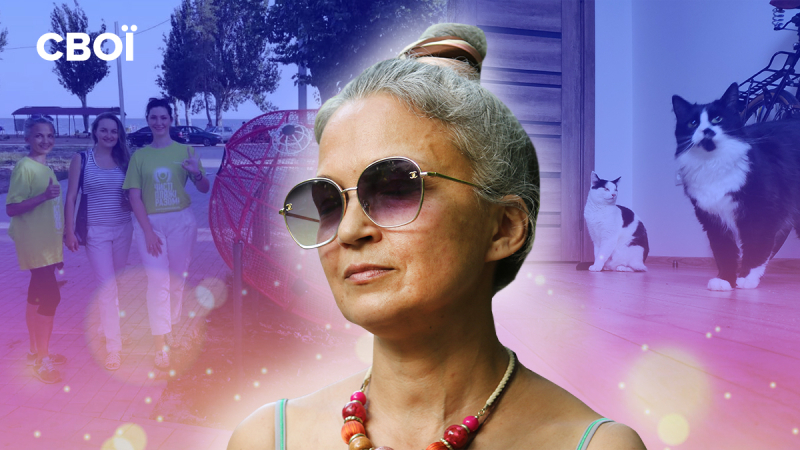
The war that Russia launched against Ukraine on February 24 destroyed many destinies and forced many to leave their homes. However, even when running away from Russian shells, the Ukrainians did not forget about their favorites, taking them with them into the unknown.
Natalia Gaetska could not leave her four-legged fluffies either. As part of the SVOI project on Channel 24, she spoke about the difficult evacuation with five cats from Mariupol, the loss of a house and a temporary shelter in Lviv.
The eco-activist did not just live in Mariupol before the start of the full-scale Russian invasion. She sincerely took care of his fate, wanted to make the city better, supported eco-projects and, of course, loved him with all her heart. And most of all, she dreams of returning to Ukrainian Mariupol to take part in its restoration after the occupation of the Russians.
In the end, it was thanks to friends from environmental organizations that Natalya managed to evacuate from Mariupol, surrounded by the enemy, and come to Lviv. Although evacuation seemed impossible to the woman. Subsequently, as Natalya herself admits, her tempered character and many caring people came in handy.
Conversation with Natalia about the departure from Mariupol: watch the video
Back in March 2019, a group of activists and caring citizens organized 4 open-air cleanings in four districts of the city. After that, Natalia became the head of the Mariupol Zero Waste initiative group, an organization previously called “Mariupol sorts”. >
Tell us more about the Mariupol Zero Waste initiative. What did you do?
Our last project in Mariupol was very responsible and big. It was called Re Mariupol – a project about hazardous waste in the city. Previously, there were practically no processors in Mariupol, mainly purveyors. Therefore, condominiums have introduced a garbage sorting project.
It turned out that it is very valuable to collect recyclables by the entire entrance, house, condominiums. Then it is accumulated and sold to the processor. Some condominiums made flowerbeds for this money, bought flowers, improved something in the entrance, made repairs. And that inspired us so much.
We decided to install fish in Mariupol, which will be not just a container for collecting recyclables, but also an art figure, an image project for the city. So on three beaches of Mariupol we installed five such fish. We were very afraid that anything would be written there. But no, about 90% of them were PET bottles, exactly what was required.
Fish for collecting PET bottles in Mariupol/Facebook photo Mariupol Zero Waste < /p>

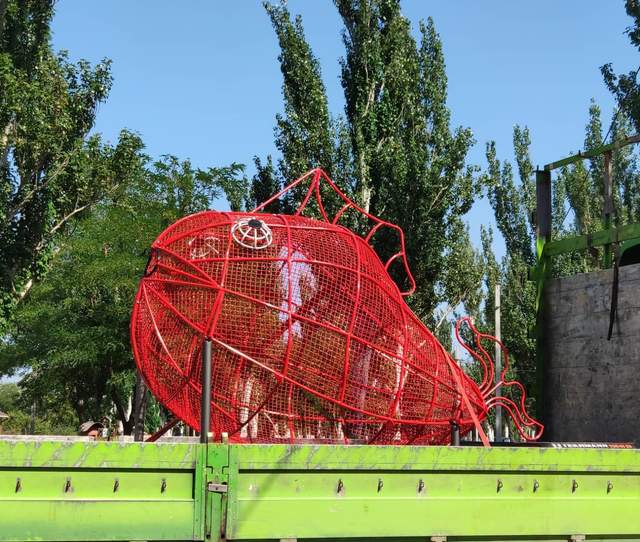
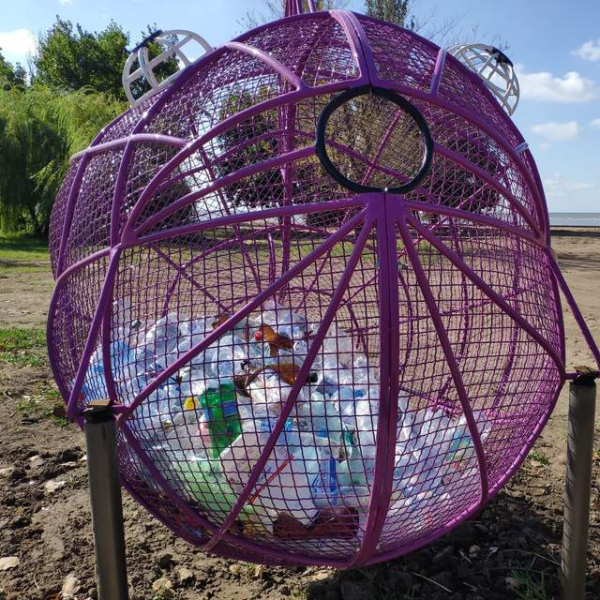
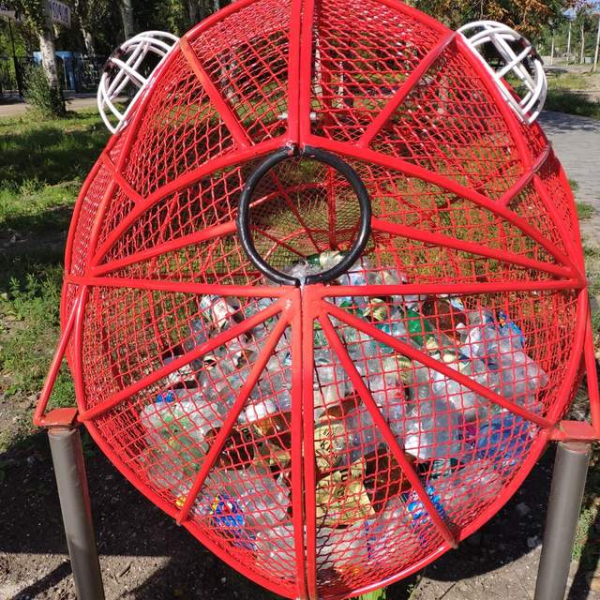
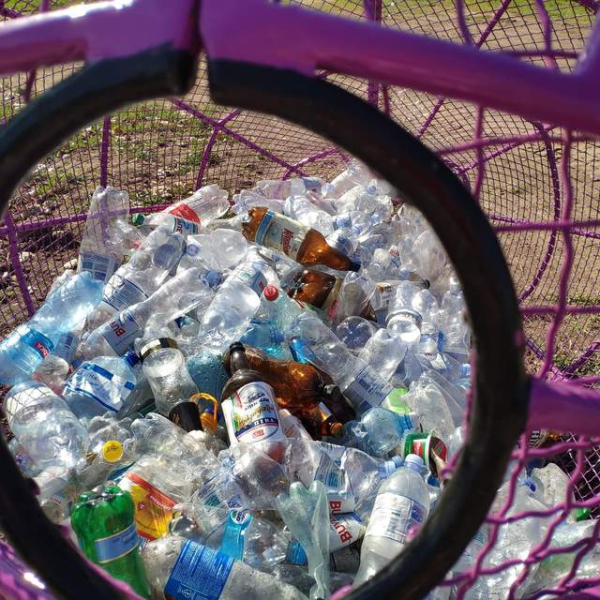
Today, these 5 fish have remained in occupied Mariupol . They are still the same as they were. We made them so high quality.
The fish are waiting for their return, we will definitely return to them. Will we live there or not? But we all really, really want to come and participate in the revival of Mariupol.
“It was believed that those were the most terrible times” : about the first days of the war
How did the war start for you?
The war found Natalya in Mariupol. At first she lived in the East microdistrict. This is actually the edge of the city, which was one of the first to be shelled by the invaders.
we already had continuous shelling , it was impossible to find water.
And it so happened that by a miracle a taxi driver was found who decided to come to the Eastern microdistrict. Then no one knew that it would be even worse, it was believed that this was already the most terrible time. All I took with me was the bare minimum. Basically, this is what I had on. I didn't even have time to grab my laptop.
I took these four animals and the mother. We were very lucky that the taxi driver was driving right through the area where my father was in the hospital. We picked him up.
Natalia with cats in occupied Mariupol/Photo courtesy of Channel 24
“Drank water from snow and cooked on a fire”: how Mariupol lived without light and water
Natalya and her family lived on the Left Bank from March 1 to March 15. This year, March, unfortunately, was very cold. The temperature outside dropped to -10 degrees. The apartments without gas and electricity quickly cooled down, so people warmed up as much as they could.
What did you do during these long 2 weeks? How did you survive?
Then it was snowing, it was very cold. But snow helped some people, because people collected this snow, drowned it and drank it like water. In general, this is a very big problem for large cities when there is no water. If the centralized supply stops, the city immediately finds itself in such a situation that there is simply nothing.
I was engaged in feeding my parents, going for firewood, talking with neighbors, met people whom she had seen for the first time in her life. That is, she did everything in order to survive. We made one fire for the entire entrance, and in turn cooked something there. Twice a day.
I did not even hope that I would be able to leave. Because people drove out in their cars, but I don't have one. When I was able to get in touch with my daughter, she said that they were not letting anyone through. Not a single gumconvoy can get to Mariupol: neither to deliver anything, nor to pick up people. They don't let anyone in.
However, Natalya's neighbor was one of many who understood that she had to leave by any means, even at the risk.
I realized that it was just as dangerous to stay as it was to drive on the open road. Enemy aircraft were constantly flying over us then. And they kept dropping bombs. And these bombs got closer and closer and closer every day.
But I said that I have such an “almshouse” … Parents, animals. The neighbor asks: “How much?” I answer: “4”. She says: “God” … And she also has a cat, a heel.
Natalia would never leave cats/Photo courtesy of Channel 24
“All night I wrote 'children' on a car with nail polish”: preparation for departure from Mariupol
It was very difficult on the day of departure, because it was necessary to make inscriptions. by car. People leaving the hot spots did not know what to think of so that they would not be shot on the way. Someone tied white rags, someone wrote some inscriptions.
Almost all night I painted the inscription “children” on paper with black nail polish, which I found at a colleague's house . Because I didn't find anything else.
However, as it later became obvious, the Russian military is indifferent to any inscriptions and tablets. This is confirmed by dozens of photographs with shot cars, on which there were signs “children”. This was also confirmed by Natalia.
As it turned out later, the Russian military did not give a damn about any signs. If they wished, they simply shot. And so those who left were lucky.
Russians even fired at cars with children/Photo by Radio Liberty
I had only 2 carriers. Imagine 2 carriers for 5 cats. The neighbor's cat is also purebred, domestic. And he was also very scared. I caught him, we stuffed him into the carrier along with my cats. And, in principle, all the property was our animals.
“You couldn't even get out of the column to go to the toilet”: about militants and Kadyrovites at checkpoints
We met checkpoints with the so-called “Dronovites”, they all checked documents, some looked at the car. We were lucky, we were not checked very much. They looked through the window, and we have these carriers with cats, and I say: “We are animal rights activists, we take animals out. And they did not want to contact us. But they all looked at the documents.” Then we began to come across Kadyrovtsy or someone else of nationality. There were those who could not connect two words even in Russian. They spoke with a very strong accent, they were either from the mountains or where they came from. And immediately we went to fight in Ukraine. It seemed to me that we just stopped every half an hour. They waited, then twitched, stopped, waited. And so they spent a lot of fuel. We already reached the last liter. Sometimes I had to take a detour. It was impossible to leave the column even to go to the toilet. We opened the door, went to the toilet at this door, quickly jumped to the car and got dressed there. Natalya couldn't get to Zaporozhye that day because the curfew began. the occupiers flatly refused to let them through. They ended up in the middle of the road, almost without fuel at night and with a temperature of -10 outside. Fortunately, at least there was a mobile connection. So Natalia was able to contact her Lvov colleagues, who told her the way to the nearest settlement. So they drove to the village, where they were met by the head and placed in the first-aid post. We spent the night there, sitting on chairs. And in the morning they helped us find at least some fuel. Then we had to get to Zaporozhye. We prayed all the way. And before that, driving across the field, they saw destroyed villages, completely burned meadows, slopes, everything was black. Natalia remembers the evacuation from Mariupol/Channel 24 Photo In the end, after a long journey, Natalia finally managed to get to Zaporozhye. But she did not stay there for long – after 2 days she went to Lviv with her parents and cats. Colleagues called me. They are just golden people, we have such, you know, a very stable community. Because our values are a clean environment, we all started, and it was very difficult for us with this activity. Therefore, this toughness was useful to us. And my colleagues coordinated our entire journey. They told me when I was able to get in touch to go to Lviv. They kept an apartment for us until we find permanent housing. And I went to where I was called. So we lived – 4 cats, two parents. And then my girlfriend joined me with her son, also from Donbass. Natalia's cat in a new place in Lviv/Photo courtesy of Channel 24 Perhaps the only consolation in Lvov for Natalia was the nursery. She had long dreamed of organizing something in Mariupol. And when I found out that such a project was working in Lviv, I immediately took the address. Help. Rassadnik is an eco-space of urban gardening and horticulture, located in Lviv right in the middle of the city park Iron Water. They don't just grow plants. It is also a multifunctional space created for people to learn to live in harmony with nature, to be comfortable in an urban environment. I liked it so much that it is not only environmentally friendly, but also very aesthetically pleasing. And some kind of energy that pulls here just to come to do something. Rasadnik is an eco-space of urban gardening and horticulture/Photo from the nursery's Facebook < p> “Colleagues called me, golden people” : about a temporary shelter in Lvov
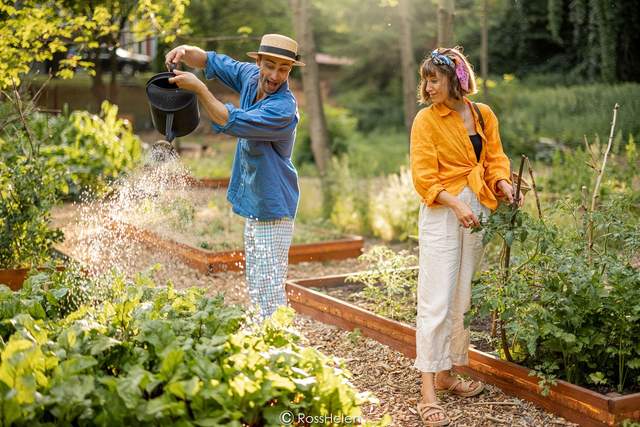
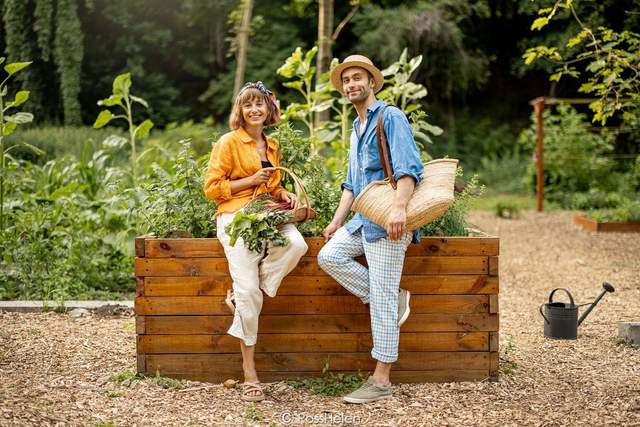

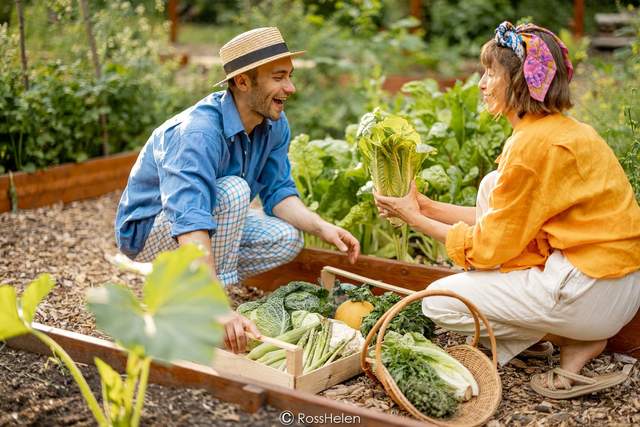
What did you do in the nursery?
Planted plants, harvested and talked. Thus, I joined, as far as possible, what is happening here.
“After the experience, grounding is needed”: how a nursery in Lviv helps to settlers
Channel 24 also talked to co-coordinator of the Rassadnik space Angelika ZozulyaIn general, there was a very difficult situation at the beginning of active hostilities, in February it seemed to our team that everything related to eco-projects was out of time. But then we realized that humanitarian initiatives – they are also very tedious, that a large number of people come to Lviv and are looking for rest, grounding, restoration, require some moment in order to rethink everything that happened.
And we thought why not use this space and what nature gives us to restore the psycho-emotional state. People can come to us and work physically, taking care of the beds, watching the plants, growing something, – Angelica noted.
According to Anzhelika, there are several categories of internally displaced persons who come to the nursery. Among them:
- Parents with children– for them, this is a very energetic, strong place where they can be distracted. This is especially necessary for people who have lived for some time or now live in shelters. They emphasize that very often the boundary between private spaces is lost. And being in a nursery, in a park area, within a space where no one presses you, does not indicate what to do, you have the opportunity to be distracted and enjoy something pleasant.
- People, previously engaged in and associated with plants – those who, for example, had household plots, or summer cottages, and lost the opportunity to work on the land.
“For example, we had a woman from near Zaporozhye, she had a collection of more than 800 types of various roses, and her heart just broke, every time she came to us, she cried, she remembered her garden. At the same time, she thanked us for giving her the opportunity to work here, on earth, and feel the contact with nature, which she lacked so much,” recalled the co-coordinator of the Rassadnik space.
Natalia admitted that she would very much like to return to Ukrainian Mariupol. However, Mariupol is not her only home. Even earlier, Russian invaders took away Donetsk from her, where she lived for 18 years.
First, Donetsk was taken away from me, we all loved it very much. I lived in Donetsk since I became a student, then I got married. My child was born already in Mariupol. These 2 cities are native to me. I would love to return. But if I take it soberly, I understand that it will be psychologically difficult for me to live in a city so close to the Russian border, even if it is liberated.
I would like to come, but I can not think in advance. I really miss the sea, so we will definitely return to the sea. I will come, come back, and in any case, wherever I am, I want to join the revival of Mariupol.
Whether I can live there or not, we will see how it will develop, what will happen. I don't think that it will be closer to the future, but we still hope.
Natalya is not the first heroine of our interviews who is worried about how she will live after the de-occupation of her native city. the Russian army has caused our people too much pain by raping, torturing and killing thousands of Ukrainians in their homes, on the battlefield and even right on the street.
Unfortunately , the Ukrainian land will forever be saturated with the blood of the best daughters and sons of Ukraine who stood up for its defense. It will also be red from the blood of ordinary Ukrainians who did not have time or did not have the opportunity to evacuate and felt for themselves what “brotherly love” of Russia is.
However we are sure that their sacrifices will not be in vain and those who survived will be worthy of it. We will definitely rebuild our cities and villages, roads, schools, houses. Because we, unlike the Russians, know how to create, not to destroy and maim.

